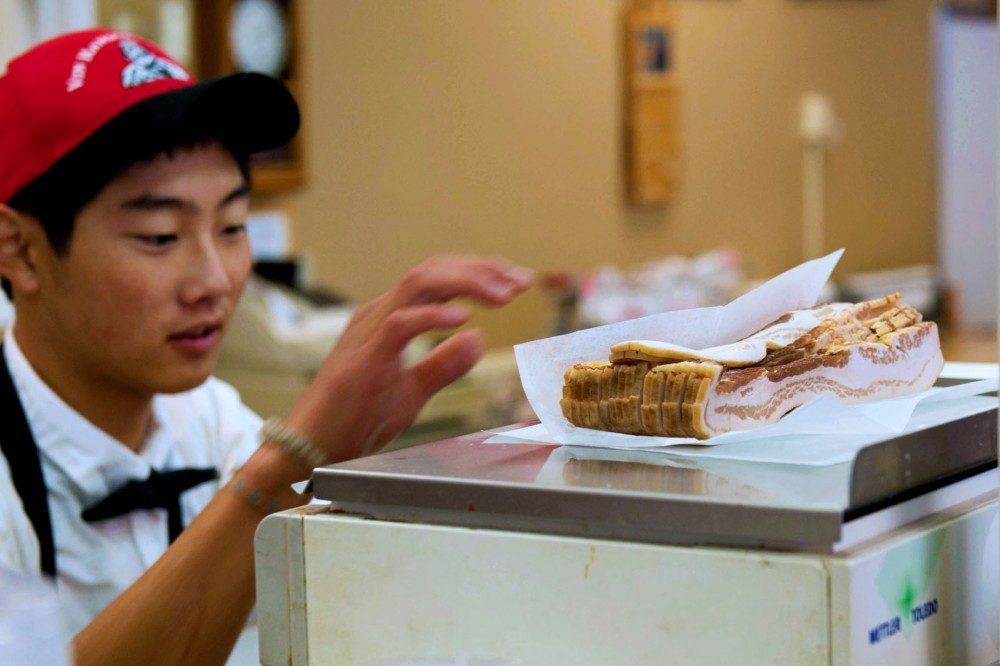Bacon connoisseurs went hog-wild at the end of September. The cause was a study released by a British group, the National Pig Association, which claimed that there would be a shortage of pork next year.
“People are very protective of their bacon,” said Jennifer Reilly, a consulting nutritionist for the Physicians Committee for Responsible Medicine. “They have a hard time when there are wonderful foods you can get healthier by eating.”
Shortage may be the wrong word for the phenomenon that will increase the cost of raising a pig. Severe droughts have affected the corn and soybean supplies commonly used for feed. Consumers can expect the price of pork products to rise by as much as 10 percent.
However, at Minneapolis’ The Library Bar and the Triple Rock Social Club, bacon will, for the time being, continue to be free on Wednesday nights.
“We do 90 pounds of bacon that probably cooks down to about 75,” Jonathon Tourville, a manager at The Library, said. “That can go in like 20 minutes.”
Sometimes, the bacon can literally run out the door.
“These two women — about a month ago — asked if they could take the bacon to go, which they can’t,” Tourville said. “Then they bolted with the basket.”
While bacon theft is not a common crime, police from Surrey, England, were equally perplexed about a bacon thief two years ago. The man broke into a home in the early morning, only to abscond with a package of the succulent treat.
Rascally bacon aficionados ought to be more concerned with the health risks associated with processed meats than the acquisition of cured pork tummy.
“1.7 ounces a day of processed meats increases your colorectal cancer rate by 21 percent,” Reilly said.
Bacon is a processed meat made when raw pork belly is taken and brined in a salt water solution. During that step other preservatives may be added, specifically nitrates and nitrites that are used to lengthen shelf-life. Usually the product is then cold-smoked with very little heat, which is why bacon must be cooked after purchase.
“Nitrates are known carcinogens,” Reilly said. “But they are making nitrite- and nitrate-free meat products.”
While those products have no nitrates artificially added, they still have nitrates that are created naturally during the smoking process.
Maybe this report and recent studies will harken an end to a trend that has seen bacon injected into just about every item imaginable. From floss to vodka, ice cream to hot sauce, bacon has left its hoof prints everywhere.
“I think the novelty may have worn off,” Kevin Crowley, of the Triple Rock, said. “We started about two years ago — used to go through 40 pounds of bacon and plenty of beer to wash down that porky mass.”
Now the Triple Rock goes through a mere 15 pounds per Wednesday.
At a range between 40 and 50 calories and 4 grams of fat per slice, bacon has little to no nutritional redemption. It is all about the flavor.
“As a general rule, bacon isn’t good for us and for whatever reason we forget,” Reilly said. “[People think], ‘My grandfather lived to a hundred, and he ate bacon.’”****








